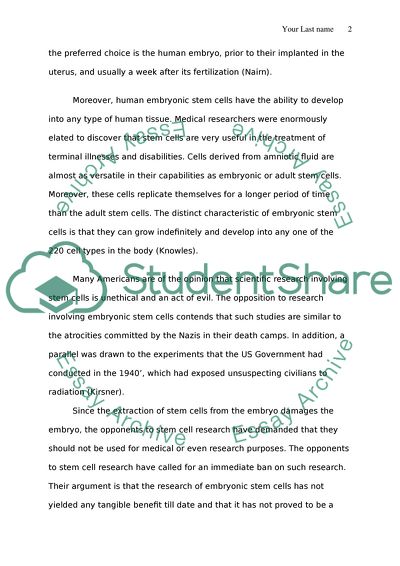Cite this document
(Support of Stem Cells Report Example | Topics and Well Written Essays - 1250 words, n.d.)
Support of Stem Cells Report Example | Topics and Well Written Essays - 1250 words. https://studentshare.org/biology/1716757-support-of-stem-cell-research-argumentative
Support of Stem Cells Report Example | Topics and Well Written Essays - 1250 words. https://studentshare.org/biology/1716757-support-of-stem-cell-research-argumentative
(Support of Stem Cells Report Example | Topics and Well Written Essays - 1250 Words)
Support of Stem Cells Report Example | Topics and Well Written Essays - 1250 Words. https://studentshare.org/biology/1716757-support-of-stem-cell-research-argumentative.
Support of Stem Cells Report Example | Topics and Well Written Essays - 1250 Words. https://studentshare.org/biology/1716757-support-of-stem-cell-research-argumentative.
“Support of Stem Cells Report Example | Topics and Well Written Essays - 1250 Words”. https://studentshare.org/biology/1716757-support-of-stem-cell-research-argumentative.


